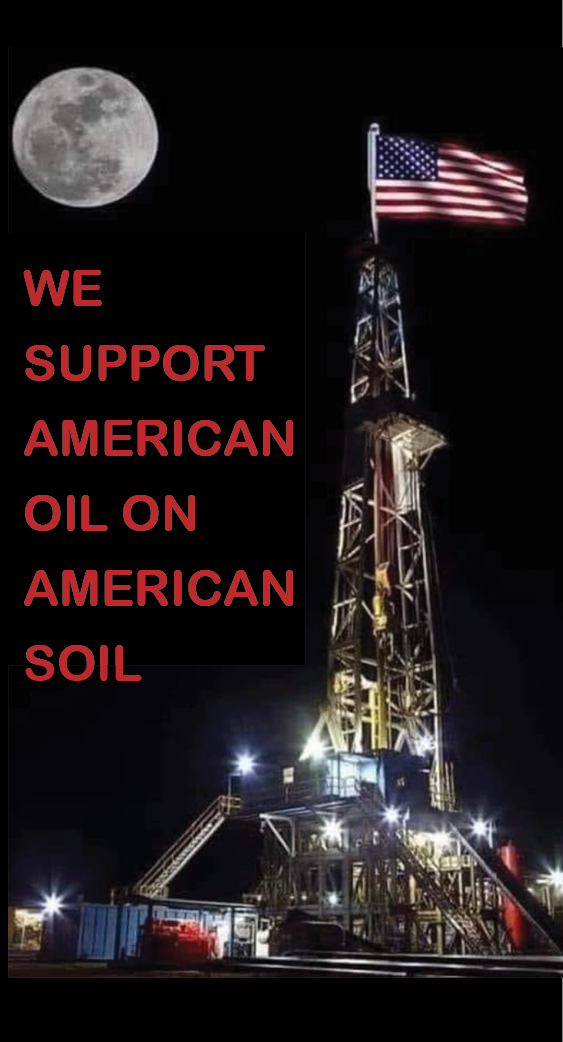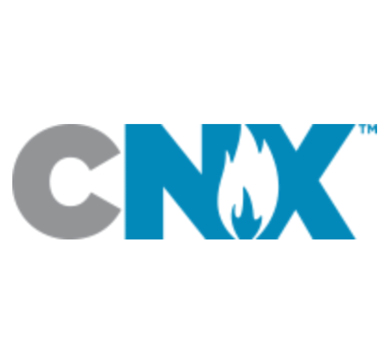Retired Coal Miners Losing Health Benefits as Companies File Bankruptcy
Sitting at his kitchen table at his home near Sesser, retired coal miner Jim Miller fumbled around for the right word. Betrayal. That’s the one he settled on. That’s the way he felt when he opened a letter in the mail on July 5 from Alpha Natural Resources, from which he retired in 2007, stating his health care benefits will terminate Aug. 1 — this Monday.
Alpha declared bankruptcy in August. A bankruptcy court judge approved the coal company’s request in May to cut worker benefits as part of its Chapter 11 restructuring agreement. Five months prior, a judge reportedly approved the company’s request to award 15 top-level executives metric-based bonuses totaling upwards of about $12 million, which it argued was necessary to retain its leadership team.
Miller, who is 71, retired from the Wabash mine in Keensburg in 2007. Foundation Coal Holdings, Inc., a sibling company of Alpha, closed the mine that year as talks broke down with the UMWA over a wages dispute.
Miller and his wife Carolyn, both are fourth generation coal-mine employees — she worked in the warehouse for Old Ben Coal Co. — have decorated their Americana styled home with coal mining memorabilia. A “Coal Minin” sign hangs behind the television. Miller said he’d invite the judge that signed off on stripping him of his benefits to pay a visit to his house tucked among farm fields in rural Franklin County, and sit down with him at his kitchen table, which is covered with a red, white and blue table cloth. Perhaps then, he said, the judge and coal executives might truly grasp how their decisions are playing out in people’s lives all across the Heartland.
“He won’t do that,” he said. “They are not going to leave their house. They are just going to tell me and my wife what we’re going to not have and then that’s it. He’s going to go on driving his Cadillac up and down the road, waving at everybody.”
“Nah,” he added in a tone suggesting disgust.
RALLY PLANNED IN D.C.
Miller’s medical benefits are in jeopardy, though not immediately. About two weeks ago, the UMWA, according to its website, struck a deal with Alpha and Contura Energy, the downsized company that emerged from Alpha’s bankruptcy proceedings. In lieu of the companies paying for and administering retiree health care, lump-sum payments totally $28.5 million are to be paid into a fund the UMWA will manage for retirees of Alpha, including Miller, and retirees from other companies that have also recently declared bankruptcy.
UMWA International President Cecil Robert said, in a statement, that those funds “will not last long.” “Time is quickly running out for these and thousands of other retirees who depend on these benefits.” The UMWA and its membership have been pleading with Congress for months to toss them a lifeline.
Miller has signed up along with several hundred other United Mine Workers of America retirees, their spouses, family members and caregivers from Southern Illinois, to travel by bus to Washington, D.C., for a Sept. 8 rally outside the U.S. Capitol.
They are hoping the sight of thousands of retired coal miners — many aging and with visible disabilities, frequently related to their time on the job — will pressure lawmakers to pass Senate Bill 1714 — the Miners Protection Act of 2015. The bill would amend the Surface Mining Control and Reclamation Act of 1977 to expand the eligible use of interest transferable from the reclamation fund and supplemental general fund payments for retiree health care costs.
UMWA spokesman Phil Smith said the line item for the supplemental fund health care payments are roughly $490 million annually. “We don’t use that every year,” he said. “What we’re asking for is the ability to put these retirees under that (health care) fund, and to use whatever is left over for the pension fund to make sure it doesn’t collapse.”
Smith said he’s expecting at least 5,000 people from coal mining communities in various parts of the country to travel to D.C. for the rally. Another union official said he hoped the number would be closer to 10,000. “We need to make sure folks in Congress understand there are real people whose lives are at risk here, and that’s why we’re having the rally,” Smith said.
AT HOME UNDERGROUND
Miller spent much of his life underground, as did three generations of men before him — his father, grandfather and great-grandfather. At age 7, he lost two uncles when the Orient Mine No. 2 near West Frankfort exploded on Dec. 21, 1951, claiming the lives of 119 men.
Roughly 12 years later, in January 1963, his father and two other men died when a fire at Orient Mine No. 5 just east of Benton broke out and they were trapped underneath. Their bodies remained underground for more than a month. Before he died, his father — who lost a brother and brother-in-law in that 1951 Christmastime disaster — strongly suggested that Miller pursue a different career, an above ground one as a diesel mechanic.
Miller tried that. He said he looked up to his father, a deacon at the Rend City Baptist Church who lived a humble, quiet life in service to God and his family. Miller said he only ever heard his father say “one bad word.” “He was working on a combine and mashed his finger,” he said. His father was 37 when his lantern, body and hardhat were pulled from the mine.
To a young boy, that seemed like an old man to him at the time, but now 37 seems so young, he said. As he spoke of his dad, tears welled at the corner of his eyes as he tucked his thumbs into the straps of his Round House denim overalls and leaned forward in his chair. “I don’t know what’s wrong with me,” he said, as he fought to steady his emotions for a loss that remains raw some 50 years later.
Miller was enrolled in a trade school in Nashville, Tennessee, when he got word that his father had died. Miller, then 18, was already missing home. But after his father died, he knew he had to answer his calling.
He wanted to return to his roots — to the mines, even though by this point they had claimed the lives of three family members. He got his first coal-mining job at 25. Miller quickly became addicted to the camaraderie with co-workers, the way other above-ground worries disappeared, and the connection he felt to his father 700 feet below the surface. Underground is where he felt at home among his coal-stained brothers, many of whom only ever knew him by his nickname, Huggy Bear.
“There’s a smell. There’s something about it,” he said. “It sounds corny, but there’s just something about the coal dust. It’s like a farmer picking corn, or plowing dirt. It’s just the same way. It gets to you.”
As a coal-miner on-and-off for more than 30 years, Miller was grateful for, and proud to have a job that allowed him to put food on the table and keep the lights on — literally.
Given how much he gave to the job that was at times dangerous and physically exhausting, Miller said the letter he received from Alpha really upset him.
“It was like somebody kicked you right in the stomach,” he said. “Because that’s what we all did, all coal miners … The pay was fine, but you worked. If you was a worker, you worked your tail off. But you knew if you made it to the end of the line and finished that race you was going to have your pension, and you was going to have your medical.”
THOUSANDS AFFECTED IN SOUTHERN ILLINOIS
Tim Miller, representative for the UMWA’s District 12, which covers this region, said retired coal miners, their spouses or widows should not be in a position where they have to choose between their medications and visiting the doctor, or eating. Many of the health complications miners suffer from are related to their jobs, he said. Tim Miller said about 500 people from Southern Illinois are already signed up for the trip, and others who are interested in going are encouraged to reach out to the Benton UMWA office to reserve a seat.
Thus far, nine buses are scheduled to leave from Southern Illinois on Sept. 7 from Illinois from the following towns: Benton, Harrisburg, Du Quoin, Marissa, Pinckneyville and Taylorville. Two buses are leaving from some communities to accommodate those who have expressed interest.
Smith, from the UMWA, said about 3,000 to 4,000 people in Southern Illinois stand to be affected by the loss of health care benefits being paid by coal companies that have filed bankruptcy. Thousands more are affected by an increasingly unstable pension system as there are fewer and fewer new workers paying into the system.
U.S. Rep. Mike Bost, R-Murphysboro, said he is supportive of the measure, and voted in favor of identical language when it was called in the House. Bost, a member of the Congressional Coal Caucus, said he has heard second-hand, from representatives close to Senate Majority Leader Mitch McConnell, that the Kentucky Republican plans to allow the bill to begin making its way through the process sometime after lawmakers return from recess on Sept. 6.
It has been widely reported, and Bost said it is his understanding, that McConnell was holding the bill up over a fight with the UMWA. Though McConnell has been a staunch defender of the coal industry, the UMWA endorsed his opponent, Alison Grimes, in the 2014 election. The UMWA’s Smith also said the union has received indications that there will be a vote to move the bill from the Senate Finance Committee. “That’s what we’re told,” Smith said. “We’ve been asking them to do this for some time.”
Bost said there is bipartisan support in the U.S. House and Senate to free up funds for retired coal miner’s health insurance. He said the issue of providing funds to shore up the pension plan is more complex, because the UMWA’s system is not the only one in trouble. Bost specifically mentioning the crisis facing the Central States Pension Fund that provides retirement benefits to iron workers and truckers throughout the Midwest. The government has to be cautious, he said, about the extent to which it agrees to bail out non-government pension funds.
These issues for coal miners are coming to a head as more and more companies file bankruptcy, citing shifting energy policies and air standards that are pinching profits. Peabody Energy Corp, based in St. Louis, was the latest to file Chapter 11 bankruptcy, which it did in April. Peabody followed in the footsteps of Alpha, Arch Coal Inc., Patriot Coal Corp., and Walter Energy.
Some of the restructuring agreements that have emerged from bankruptcy courts have been criticized as financial engineering that put an undue burden on workers and retirees. Bost, who primarily blamed the so-called “war on coal” for the bankruptcies, also said he “has some concerns” about some of the ethics of the restructuring deals emerging from courts, though stopped short of suggesting they violated the law. “If it’s a legal question, that’s for someone with better insight than me,” he said, noting those are the types of questions that can be worked out through the legal system. But as to the ethics, he said it appears to him that decisions may have been made to protect shareholders and the bottom line at the expense of former employees.
“So yeah, I have concerns that might be what has been done,” Bost said. “I don’t have any proof other than knowledge of what has happened and concerns of what I see.”
U.S. Sen. Dick Durbin, D-Illinois, said in a statement issued in response to a request from The Southern Illinoisan that he is supportive of the Miners Protection Act, and likewise acknowledged expressed concerns about some of the restructuring agreements.
“Retired miners should receive the pension and health benefits they rightfully earned through years of hard work,” Durbin said. “But all too often, the promises made to retirees were put at risk by the financial crisis or took a backseat to the interests of creditors.”
“The Miners Protection Act will provide certainty and peace of mind to our retired coal miners and their families.”
- By: Bryon Hetzler, The Southern





















